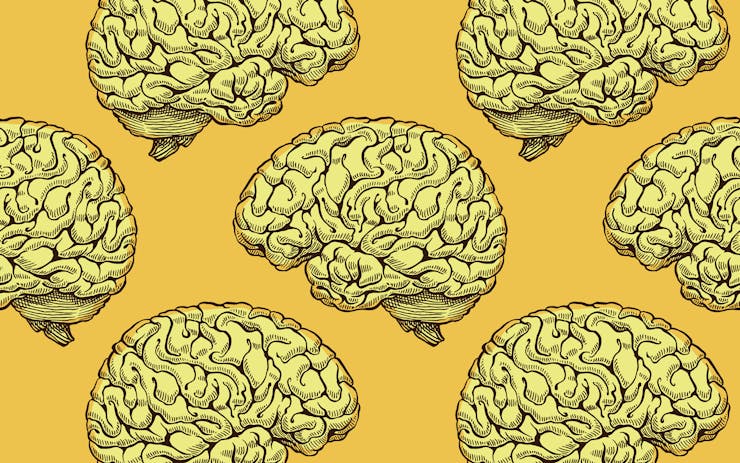A recent observational study conducted by a team of UK-based researchers found that medical cannabis may be beneficial for people with ADHD. In the rare study, researchers tracked specific cannabis patients with ADHD for 12 months, and observed improvements in their anxiety, sleep quality, and health-related quality of life. The patients tolerated the cannabis well: Less than one-fifth of them reported negative side effects, most of which were moderate. The authors argue that these results—while not definitive—nonetheless provide strong motivation for future studies on cannabis and ADHD.
“An association between [cannabis] treatment and improvements in anxiety, sleep quality, and general HRQoL was observed in patients with ADHD. Treatment was well tolerated at 12 months.”
Ittiphakorn, 2023, Neuropsychopharmacology Reports
Expanding ADHD treatments with cannabis

ADHD—or attention-deficit/hyperactivity disorder—is a neurodevelopmental condition usually characterized by uneven focus, hyperactivity and impulsivity. While traditionally classified as a disorder, many experts now define it as a type of neurodivergence (a natural human variation in how different brains process information).
Viewed from this perspective, ADHD presents unique benefits such as creative thinking, high energy levels, and hyperfocus. Yet the diagnosis comes with its share of difficulties, too: Not just difficulty focusing, hyperactivity and impulsiveness, but higher incidence of sleep issues, anxiety, and depression. These difficulties can negatively impact quality of life, school, work, and social relationships.
The National Health Interview Survey estimates that over 10% of the US population has ADHD. While some medications have proven somewhat effective in mitigating ADHD symptoms (such as Adderall, Ritalin, or Wellbutrin), many of them cause negative side effects. Due to risks like decreased appetite, insomnia, emotional dysregulation, irritability, and adverse cardiovascular events, many individuals diagnosed with ADHD avoid taking these medications.
Given these challenges to treating ADHD, researchers have wondered whether cannabis might present an effective alternative, without such a high risk factor. Cannabis is known to activate the endocannabinoid system, which ADHD may impair, according to pre-clinical research. Additional research indicates that cannabis could help boost concentration, motivation, learning, memory, hyperactivity and impulsivity in individuals with ADHD.
Other studies, however, have observed that cannabis can worsen cognitive function for ADHD patients.
ADHD and cannabis: 12-month study

To examine the long-term outcomes of cannabis use for people with ADHD, researchers in the recent study analyzed data on 68 patients with ADHD from the UK Medical Cannabis Registry. Eighty percent of the patients were already cannabis consumers.
Looking at patient-reported outcome measures (as well as patients’ daily CBD and THC doses) at 1, 3, 6 and 12-month benchmarks, they determined that patients’ levels of anxiety, sleep quality, and health-related quality of life improved.
only 11 of the 68 participants reported any negative side effects at all. Nine patients actually stopped using their other ADHD medications during treatment.
Notably, anxiety and sleep quality metrics improved at each check-in throughout the 12 months. Significant improvements were also found in health-related quality of life over the first 6 months of the study. However, by month 12, these improvements had reversed to baseline – with no significant difference between patients who were existing consumers and those who were not.
Researchers noted some moderate negative side effects as well: Most commonly insomnia, concentration impairment, lethargy, and dry mouth. Still, only 11 of the 68 participants reported any negative side effects at all. Nine patients actually stopped using their other ADHD medications during treatment.
The study adds specificity to research on cannabis for ADHD. Researchers isolated data from real patients using real cannabis, as opposed to population-level survey data, or cell, or animal studies.
We need more research on ADHD and cannabis
While this study suggests that cannabis can mitigate some symptoms of ADHD, it does have some limitations. For one, it cannot prove that cannabis caused the improvements; it could simply be a correlation. Furthermore, the study did not investigate the different effects of varying regimens of cannabis consumption: Not just dosing, but also the chemical components of various strains and the method of consumption. As such, each varying regimen needs to be studied. We cannot proceed on the assumption that all variations of cannabis will result in the same outcomes.
Shop highly rated dispensaries near you
Showing you dispensaries nearThe cohort also had more male participants (80.88%), and may thus overrepresent how cannabis impacts males with ADHD. Future studies should look at how cannabis might impact male and female patients with ADHD differently.
Finally, considering that the majority of the cohort was already using cannabis at the start of the study period—and that a cannabis consumer can develop a tolerance to its effects over time—it is possible that some patients had already developed a tolerance, or were receiving maximum benefit from cannabis during their baseline assessment. This could skew the results to show less benefits from cannabis.
Overall, the study shows strong evidence that cannabis could benefit those with ADHD, especially when it comes to alleviating the anxiety and sleep disruption associated with the condition.
Overall, the study shows strong evidence that cannabis could benefit those with ADHD, especially when it comes to alleviating the anxiety and sleep disruption associated with the condition. But more research is needed to confirm these results and determine the best ways to use cannabis for these effects.
If you’re curious about using cannabis for your own ADHD, always consult with a cannabis-specializing doctor.





